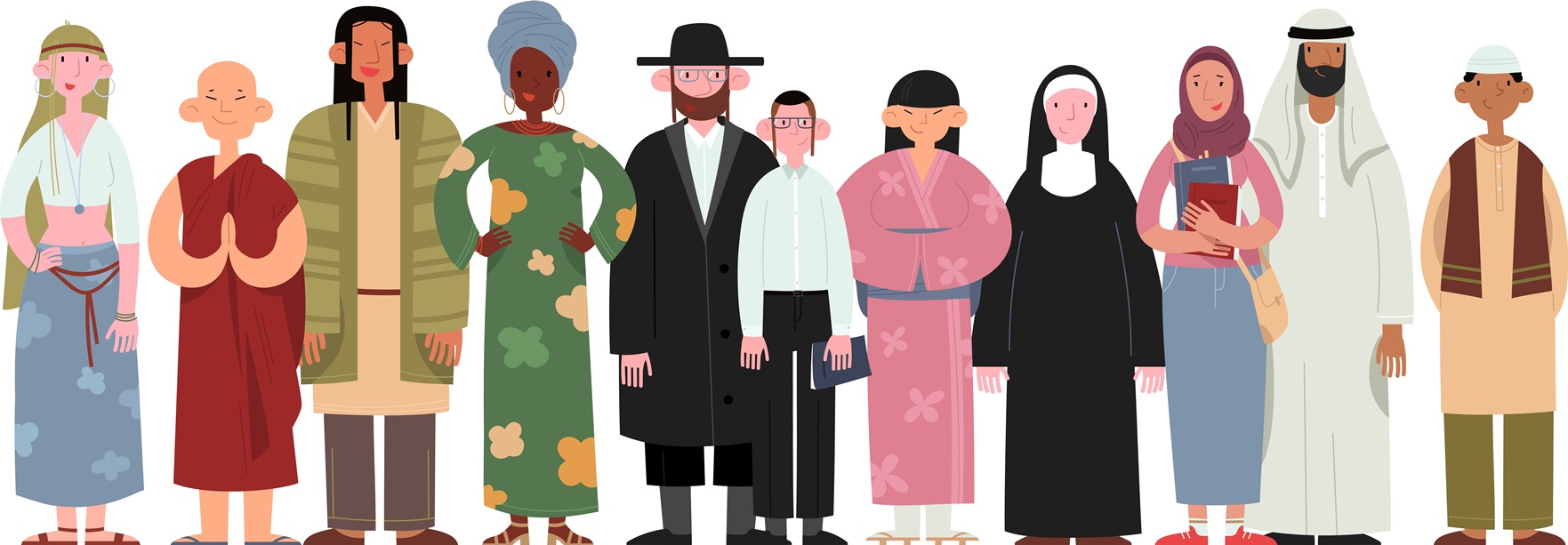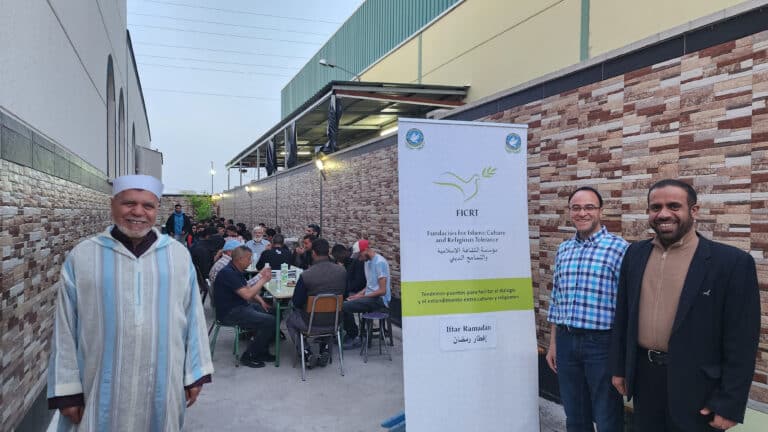The contribution of religions to universal tolerance
On the road to universal tolerance, in addition to the work of bodies such as the United Nations and UNESCO, religions have also made fundamental contributions. One of them, perhaps the most significant in recent years, has been the creation of a High Committee of Human Fraternity. Today from FICRT we invite you to discover this international and interfaith initiative for tolerance.
We wanted to begin our Monday reflections on the essential values to which the Foundation is committed with a presentation of important milestones on the road to the consolidation of tolerance as a universal and global concept. The other Monday we traveled through history to the adoption of the UNESCO Declaration of Principles on Tolerance (1995). ![]() . Recently, another important step has been taken in this expansion of the concept of tolerance at the international level, in this case through the contribution of two of the world’s most important religions: Islam and Catholicism.
. Recently, another important step has been taken in this expansion of the concept of tolerance at the international level, in this case through the contribution of two of the world’s most important religions: Islam and Catholicism.
The concept of tolerance, as well as respect and acceptance of others, is firmly rooted in the pillars of both faiths. The Holy Qur’an states emphatically that “There is no compulsion in religion” (2:256), and the Prophet Muhammad interacted during his lifetime with members of other religions, particularly Christians and Jews, who were considered from the beginning of Islam as “protégés” (dhimmis). Proof of this relationship between the Prophet Muhammad and other religions was the protection he granted to the Christian monastery of Sinai., attested by Muhammad ibn Saad Al-Baghdadi (784-845). For their part, the Holy Gospels record the continuous declarations of Jesus of Nazareth on love of neighbor (Mk. 12:29-31), without distinction of race, ethnicity or religion, and the “beatitude” for those who “work for peace, for they will be called children of God” (Mt. 5:9).
From this shared idea of tolerance and respect, common to both Scriptures, in recent years there have been a series of meetings between representatives of different religions, including Judaism, Christianity and Islam, usually catalogued as “Abrahamic religions” because they share the recognition of Abraham as the primordial root of their religions. In 1986, representatives of the world’s different religious faiths gathered in Assisi, Italy, the city where St. Francis of Assisi was born and lived, and which since then has been a fundamental point of dialogue between religions. As a result of this spirit of coexistence and respect that has been growing closer in recent decades, in 2019 Pope Francis was invited to the United Arab Emirates to participate in the Meeting of Human Fraternity; a deeply significant milestone, as it was the first time that a Roman pontiff had set foot on the Arabian Peninsula. The most outstanding result of the visit was the signing of the Document on human fraternity for world peace and common coexistence between His Holiness Pope Francis and the Grand Imam of Al-Azhar, Ahmad Al-Tayyeb, at an event that took place at The Founder’s Memorial from Abu Dhabi on February 4, 2019.
With the mission of developing and preserving the important commitment made in Abu Dhabi, it was decided to create a High Committee of Human Fraternity, an inter-religious initiative for tolerance that is, in turn, formed by an interfaith work team: five Muslims, a Jewish rabbi, two members of the Catholic Curia and Irina Bokova, representative of the United Nations and former director general of UNESCO. The chairman of the committee is Spanish Cardinal Miguel Angel Ayuso Giuxot, President of the Pontifical Council for Interreligious Dialogue, and its secretary is Mohamed Mahmoud Abdel Salam, who previously served as advisor to the Grand Imam of Al-Azhar.
The High Committee of Human Fraternity is in charge of watching over the development of the Document on Human Fraternity, promoting different initiatives and projects for its achievement. Thus, the High Committee was responsible for the convocation of the world day of prayer on May 14, 2020 in view of the effects that the whole world is experiencing due to the coronavirus crisis. The Foundation for Islamic Culture and Religious Tolerance supported this call through the dissemination in networks of reflections on the interreligious dialogue and tolerance , and through the Day “Prayer, a Universal Value”, which brought together Christian, Jewish and Muslim voices to reflect on prayer as a fundamental key to interreligious dialogue. The High Committee is currently supporting the development of different projects such as the interesting Abrahamic Family House initiative, which we will explore in next Monday’s post. Don’t miss it!







